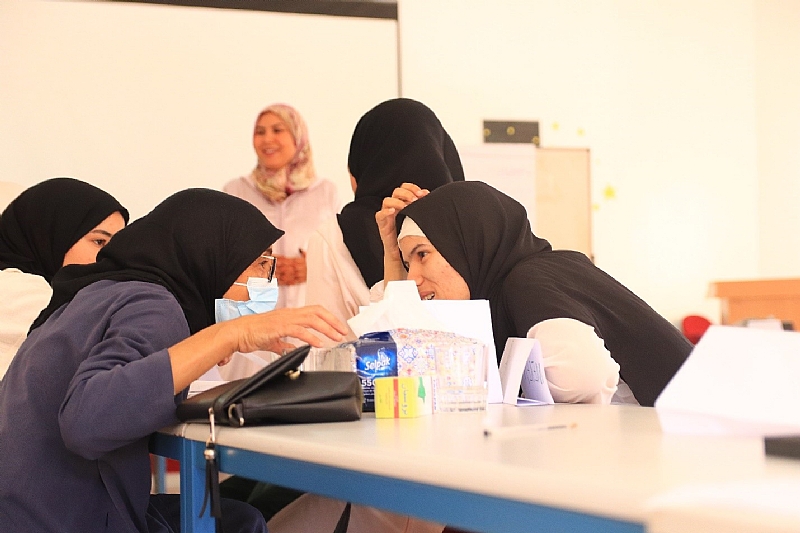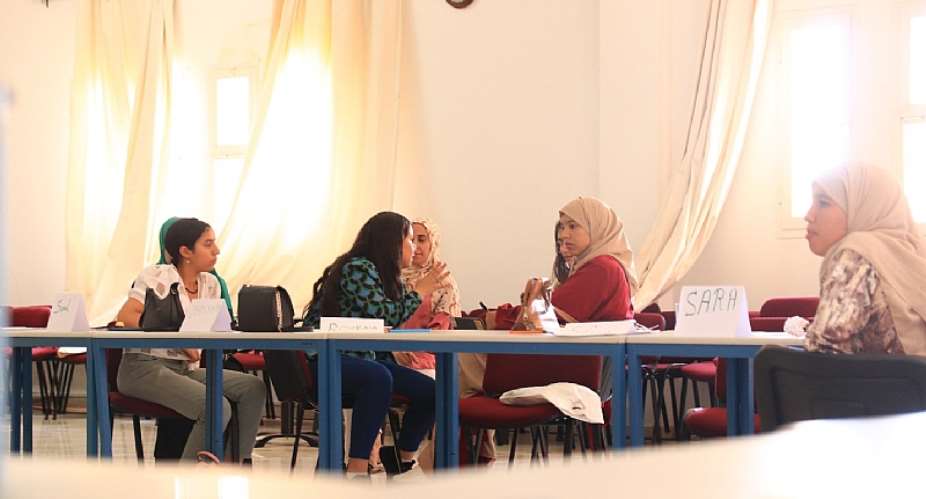In contexts with a strong diversity of thought and background like Morocco, creating development projects that will be accepted by the population can be extremely difficult. How can one project simultaneously address the needs of such varied groups? Organizations like the High Atlas Foundation have found an unlikely solution in the form of consensus decision making, where they are seemingly doing the impossible. By bringing diverse groups together and increasing the challenge of the already difficult process of consensus building, the High Atlas Foundation has been able to create more sustainable outcomes in the long run. How does this happen, and why aren’t more organizations using consensus?
Well, compared to other methods of decision making, consensus seems to have a relatively negative reputation. Forbes Magazine published an entire article tearing it down, the Harvard Business Review called it "excruciatingly slow", and Psychology Today questioned whether consensus or even agreement is really needed to make good decisions. Consensus is seen as too slow, too inconsiderate of individual differences, and ultimately not effective. However, coming to a consensus before making major decisions, while painful at first, remains a powerful tool by giving stakeholders the opportunity to decide what is most important to them. Having this extra information allows for alliances that would have at first seemed unlikely and creates a lively debate that can spur innovation more than a unilateral decision ever could.
Critics of consensus argue that consensus often ignores the individual preferences of participants. This argument suffers from a serious flaw: it assumes that information on individual preferences is immediately available in the process. Behavioral scientists have argued that preferences are formed during the decision-making process and that certain cognitive biases prevent us from knowing or accurately articulating our individual preferences. The consensus method accounts for this by giving time for preferences to fully develop and by rigorously and repeatedly checking our cognitive biases against the challenge of public debate. This information allows for the creation of alliances between stakeholder groups in a way that is simply impossible without the challenging process of building consensus. With a better idea of what is truly important, groups can more easily focus on their core values as opposed to surface-level differences. Participants will continually try to innovate and adjust to align their goals with those of the other participants in a way that simply does not happen in a faster process like a unilateral decision or a vote. In short, the debate and slowness of consensus could help lead to decisions that better address the true preferences of participants instead of their initial preferences, even if it can’t meet everyone’s preferences fully.
There continues to be a fierce philosophical debate about the tension between the individual and the collective, whether it be the social contract of enlightenment thought, the class upheaval of Marxist thought, or somewhere in between. The consensus process finds itself at the center of this tension, as it is the process of making the collective from a variety of individuals. There is no way for consensus, or any group decision-making method outside of a dictatorship, to always produce a final decision as proven in the famous Arrow Impossibility Theorem. But, while consensus cannot solve the collective-individual dilemma per se, its ability to collect accurate information about what participants truly value can be invaluable to finding synergies between individual and collective priorities, not only synergies between different individuals.
There are some situations in which consensus is truly impossible, and in those moments even consensus-oriented organizations like the High Atlas Foundation use a voting method to make a final decision (albeit a more informed vote than if it were simply voted on at the start). But while consensus does not always produce a result, the process to get there is worthwhile. Ultimately, consensus is slow, challenging, and inefficient, but that is exactly what makes it such a vital tool in today’s development landscape, especially for diverse countries like Morocco and those across Eurasia.

Maxfield Evers is a third-year undergraduate at Princeton University and is a writing and analysis intern for the High Atlas Foundation of Morocco.





 Let’s be true believers, not just church goers – Catholic Priest to Christians
Let’s be true believers, not just church goers – Catholic Priest to Christians
 Ejisu by-election: "We don’t need an independent candidate" — Akufo-Addo fights ...
Ejisu by-election: "We don’t need an independent candidate" — Akufo-Addo fights ...
 Election 2024: Bawumia dares Mahama to two-man debate as he starts countrywide t...
Election 2024: Bawumia dares Mahama to two-man debate as he starts countrywide t...
 'Borla' BVDs: 'Why would anyone want to buy 10 used biometric devices 'hard-code...
'Borla' BVDs: 'Why would anyone want to buy 10 used biometric devices 'hard-code...
 Professor Jane Naana pays last respect to Modestus Ahiable
Professor Jane Naana pays last respect to Modestus Ahiable
 IT is a major skill needed for the job market - Industry Players
IT is a major skill needed for the job market - Industry Players
 Nungua Traditional Council performs “Jenten Nishwamo” ahead of Homowo
Nungua Traditional Council performs “Jenten Nishwamo” ahead of Homowo
 Tema residents demand end of dumsor
Tema residents demand end of dumsor
 A vote for Owusu Aduomi is a vote gor NDC – Bawumia tells Ejisu residents
A vote for Owusu Aduomi is a vote gor NDC – Bawumia tells Ejisu residents
 S. Africa's ex-president Zuma makes surprise comeback
S. Africa's ex-president Zuma makes surprise comeback
